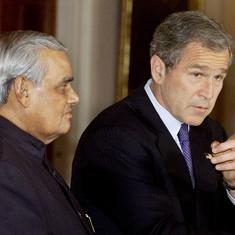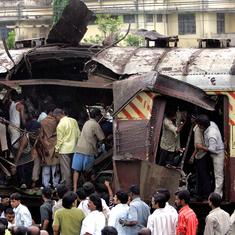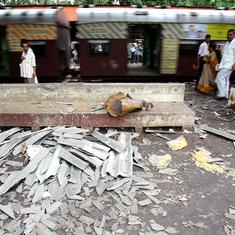With the Congress and Bahujan Samaj Party coming together to counter the Bharatiya Janata Party’s aggressive moves in the upcoming Rajya Sabha polls, the state of Uttar Pradesh seems set for a new kind of politics.
The development, though restricted at the moment to Rajya Sabha elections, is seen as a major step towards building a grand secular alliance in the state where Assembly elections are due in early 2017.
The extraordinary situation in which the BSP and the Congress decided to close ranks might not have arisen had the BJP not forced a contest by sponsoring spoilers in the Rajya Sabha elections at the last moment in politically crucial Uttar Pradesh and Madhya Pradesh.
Until the BJP fielded “independent” candidates on May 31, the last day of the nomination, it seemed that the Rajya Sabha elections in these states would be settled without any contest as different parties, following the established norms, appeared set to field nominees based on their strength – that is, the number of nominees equalled the vacancies in Uttar Pradesh and Madhya Pradesh, as in most other states.
As long as it seemed that the election would be decided without any contest, there appeared no need for the BSP to show its cards and enter into a tactical understanding with the Congress, and an uncertainty over whether the two parties would come together for the next year’s Assembly polls continued.
The master-stroke that wasn't
But on May 31, just before the filing of nominations could end, BJP president Amit Shah sprang a surprise by sponsoring party-backed independent candidates for the Rajya Sabha polls in Uttar Pradesh and Madhya Pradesh. The development, by making a contest inevitable, was presented as Shah’s master stroke that would corner Congress candidates in two states.
While Congress candidate in UP, Kapil Sibal, falls short of six votes, its nominee in MP, Vivek Tankha is one short of the required 58 votes to win the Rajya Sabha election.
Shah’s masterstroke, however, appeared ineffective when BSP chief Mayawati announced on June 4 that she would transfer her vote to the Congress candidate Vivek Tankha in MP.
Sources in the BSP and Congress confirm that the two parties are in the advanced stages of negotiations to get Mayawati transfer her extra vote to Kapil Sibal in UP.
Though a formal decision in UP is still awaited, the very fact that the two parties have agreed to enter into a tactical understanding is itself a major setback for Amit Shah, the BJP’s master strategist. For, it is his “master stroke” that seems to have forced the Congress and the BSP to take a position against the BJP in the Rajya Sabha elections, thus laying down a concrete foundation for the emergence of a grand secular alliance in the poll-bound state.
A potent alliance
A BSP-Congress alliance for Assembly elections in UP is the last thing the BJP or the ruling Samajwadi Party would like to see. For, such an alliance is potent enough to carve for itself a formidable vote base, consisting of a majority of Dalits and Muslims as well as a section of upper castes, leaving the BJP and the SP to play an Other Backward Classes-centric politics in the state. While SP is practically an OBC party, the BJP has been consciously promoting backward caste leaders in the organisation with a clear intention to win over this section of the state.
In the context of UP, this is not the first time that Amit Shah’s fabled ability to pull a political rabbit out of his hat has failed to work. He made a blunder earlier, too, as his strategy to take over Uttarakhand by creating a constitutional crisis had precipitated the first tactical understanding between the BSP and the Congress.
Mayawati’s decision to vote in favour of Chief Minister Harish Rawat’s trust motion in Uttarakhand Assembly last month was clearly a development Shah might not have expected when he set out to destabilise the hilly state.
The process that began in Uttarakhand has, seemingly, started taking shape as hectic preparations for the Rajya Sabha polls have got rolling in full earnest.










